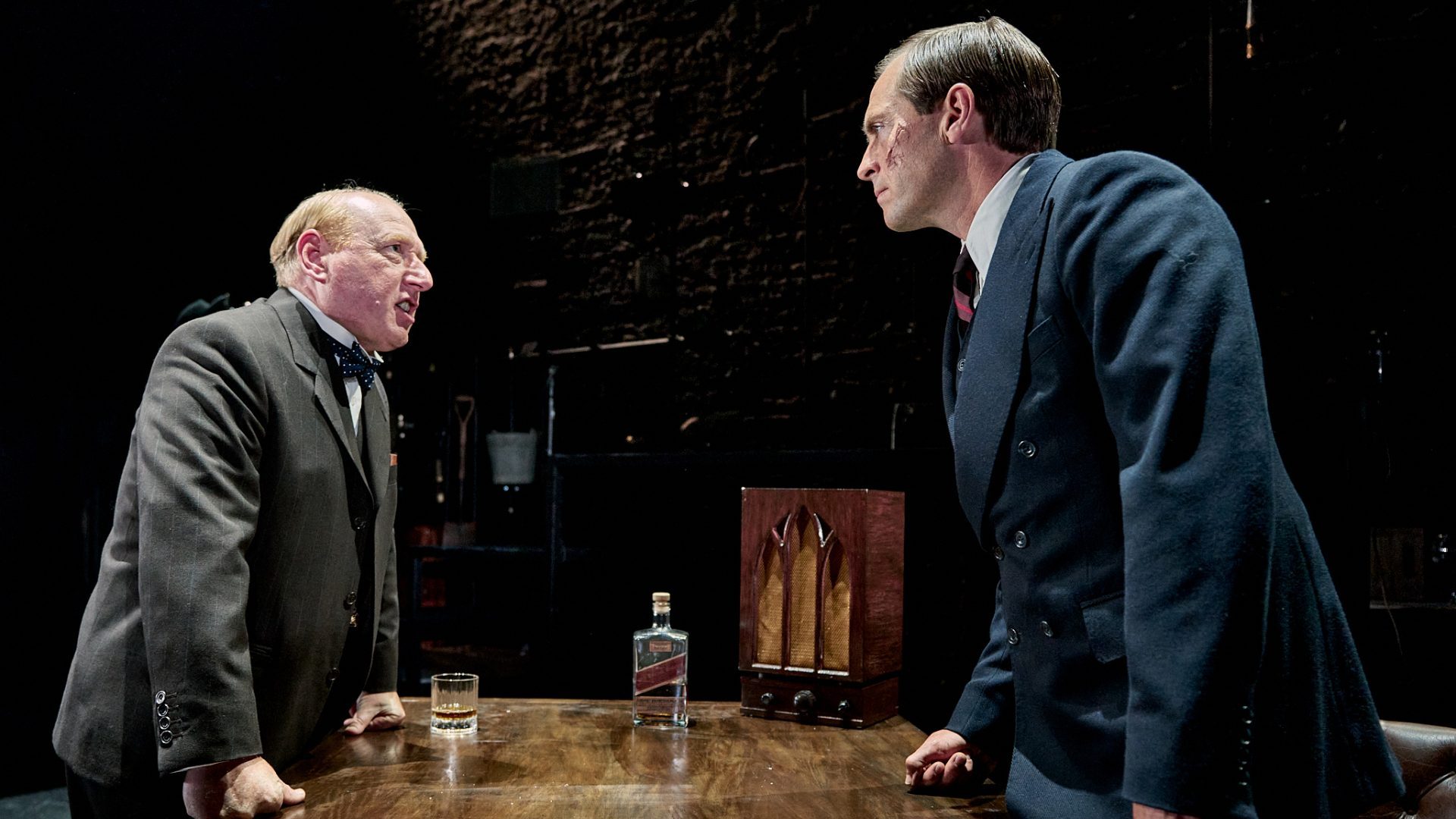When Winston Went to War With the Wireless
Donmar Theatre, London, until July 29
Was Lord Reith, the founding father of the BBC, gay? Although married with two children, there have been unsubstantiated rumours. This has emboldened the playwright Jack Thorne to have Reith kissing and cuddling his attractive boyfriend Charlie Bowser (Luke Newberry) at every opportunity.
It is of course Thorne’s prerogative to take liberties, even enormous ones, and, while I doubt anyone in 2023 cares one way or the other about Reith’s sex life, it is a theme that doesn’t really go anywhere in this strange and uneven piece and serves only as a distraction.
The story of how Reith established the tradition of independent public service broadcasting is a timely one, with the BBC now struggling to keep an increasingly desperate Tory Party at bay. There is, however, little Thorne has to say about this except that the more things change at the corporation, the more they stay the same. A wireless, by the way, is what old people call a radio.
Stephen Campbell Moore does what he can as Reith – he has an absurdly pronounced war wound on his face, that was never so obvious on the real Reith’s – but he has to think a lot more about sex than how to outfox Adrian Scarborough’s meddlesome Winston Churchill.
Katy Rudd’s production is unfocused, often boring and, while a great idea, it’s poorly realised. It’s not just the writing, but there is simply too much happening on the stage and too many characters. The contrast to Thorne’s other play – the recent The Motive and the Cue at the National which was brilliant – could not be greater.
Still, it offers the great joy of Haydn Gwynne as Stanley Baldwin. With her brilliantined hair, dark suit and pipe, she is staggeringly good in the role. Seldom if ever have I seen the argument for gender blind casting better made.










